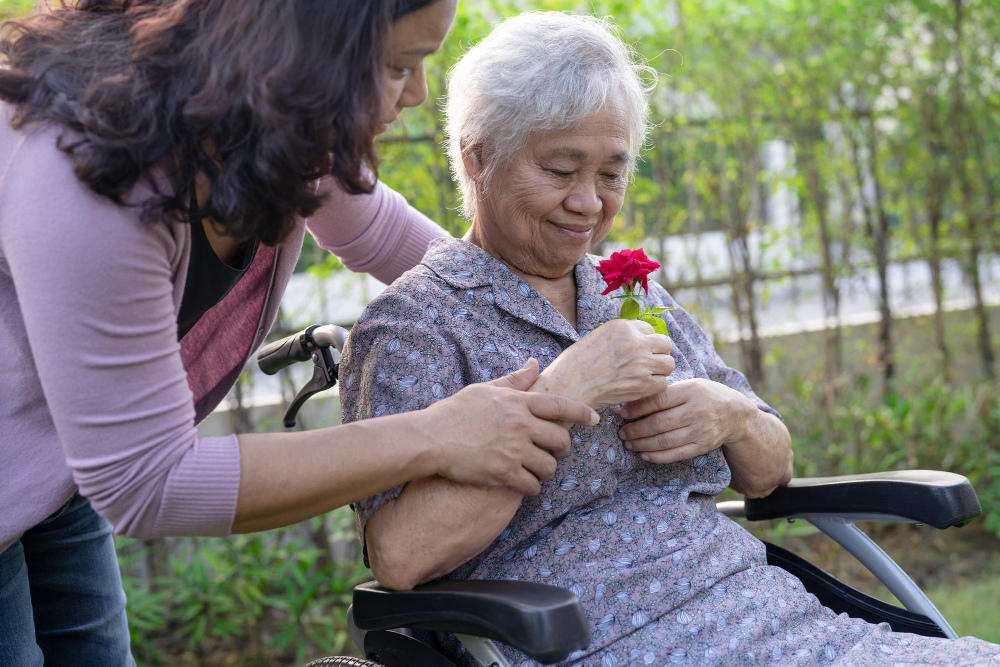
Understanding the progression of Alzheimer’s disease is crucial in providing the necessary care and support for our senior loved ones. Alzheimer’s is a progressive condition that affects memory and other cognitive functions, and although treatment can alleviate some symptoms, there is currently no cure. Awareness and education about the stages of Alzheimer's can significantly aid in managing the disease.
This blog focuses on the progression of Alzheimer’s disease in senior loved ones
The progression of Alzheimer’s disease is typically divided into five stages
Preclinical Stage
During this stage, the brain begins to develop signs of Alzheimer's, but there are no noticeable symptoms. This phase can last for many years, and detection is possible only through advanced imaging techniques such as MRI scans. Identifying this stage can be challenging without specific medical interventions.
Early or Mild Cognitive Impairment Stage
In the early or mild cognitive impairment (MCI) stage, individuals may begin to experience subtle cognitive changes that are noticeable but do not yet interfere significantly with daily life. Symptoms may include:
Misplacing items
Frequently losing items and having difficulty retracing steps to find them.
Forgetting names
Difficulty recalling the names of new acquaintances or even familiar people.
Trouble remembering recent events
Forgetting conversations, appointments, or recent events.
Difficulty with planning and organizing
Struggling with complex tasks, such as managing finances or following a recipe.
It is important to note that mild cognitive impairment does not always lead to Alzheimer’s. However, it can be an early warning sign. Regular medical check-ups and cognitive assessments can help monitor changes and determine if further evaluation is needed.
Middle-stage or Mild Dementia
The middle stage, also known as mild dementia, marks the point where a formal diagnosis of Alzheimer's disease is often made. Symptoms become more pronounced and begin to interfere with daily activities. Individuals may experience:
Prominent forgetfulness
Increasing difficulty recalling recent events, personal history, and the names of family members.
Confusion about dates and locations
Getting lost in familiar places, forgetting the current date, season, or where they are.
Language difficulties
Struggling to find the right words, repeating questions, and having trouble following or joining conversations.
Behavioral and mood changes
Increased irritability, anxiety, depression, and agitation.
During this stage, senior loved ones may need more support with daily activities such as grooming, dressing, and meal preparation.
Moderate Dementia
In the moderate dementia stage, the cognitive decline is more severe, and individuals require significant assistance with daily living. Symptoms may include:
Severe memory loss
Inability to remember personal information, such as their phone number, address, or where they went to school.
Increased confusion and disorientation
Frequently getting lost, even in familiar places, and having difficulty recognizing family and friends.
Changes in sleep patterns
Sleeping during the day and being restless at night.
Wandering and repetitive behavior
Aimlessly wandering, pacing, or engaging in repetitive actions.
Personality and behavioral changes
Developing suspiciousness, delusions, or aggression.
At this stage, it is crucial to provide a safe and structured environment. Family members should consider rehabilitation assistance services to help manage these behaviors and provide physical care.
Late Stage or Severe Dementia
The late stage of Alzheimer’s, also known as severe dementia, requires intensive, round-the-clock care. The symptoms are debilitating and impact all aspects of daily functioning. Symptoms may include:
Loss of communication abilities
Inability to hold a conversation, difficulty understanding language, and expressing themselves through gestures or vocalizations.
Severe physical decline
Loss of the ability to walk, sit, or hold up their head without assistance. They may be bedridden or chair-bound.
Total dependency for personal care:
Needing help with all aspects of daily living, including eating, bathing, dressing, and toileting.
Loss of bladder and bowel control
Incontinence is common, requiring diligent hygiene care.
Significant weight loss:
Due to difficulties with swallowing and decreased appetite.
In this stage, providing compassionate care that focuses on comfort and quality of life is paramount. Engaging in activities that stimulate the senses, such as listening to music, looking at family photos, or gentle touch, can provide emotional comfort. Professional caregivers from senior care services are essential in this stage to provide specialized medical care, prevent bedsores, and manage pain and other health issues.
Supporting Your Loved Ones
Supporting a loved one with Alzheimer’s involves understanding each stage of the disease and adapting care to meet their evolving needs. Here are some general tips for providing support:
Stay informed
Educate yourself about Alzheimer’s disease and its progression. Understanding what to expect can help you plan and provide better care.
Create a safe environment
Remove potential hazards, install safety locks, and use monitoring systems to ensure the safety of your loved one, especially if they are prone to wandering.
Maintain routines
Consistent daily routines can provide a sense of stability and reduce anxiety for individuals with Alzheimer’s.
Provide emotional support
Engage in activities that your loved one enjoys, offer reassurance, and maintain a calm and positive demeanor.
Seek professional help
Utilize elder care services, rehabilitation assistance, and support groups to share the caregiving responsibilities and get professional advice.
By understanding the stages of Alzheimer’s disease and proactively seeking resources and support, caregivers can significantly improve the quality of life for their loved ones while also taking care of their well-being.